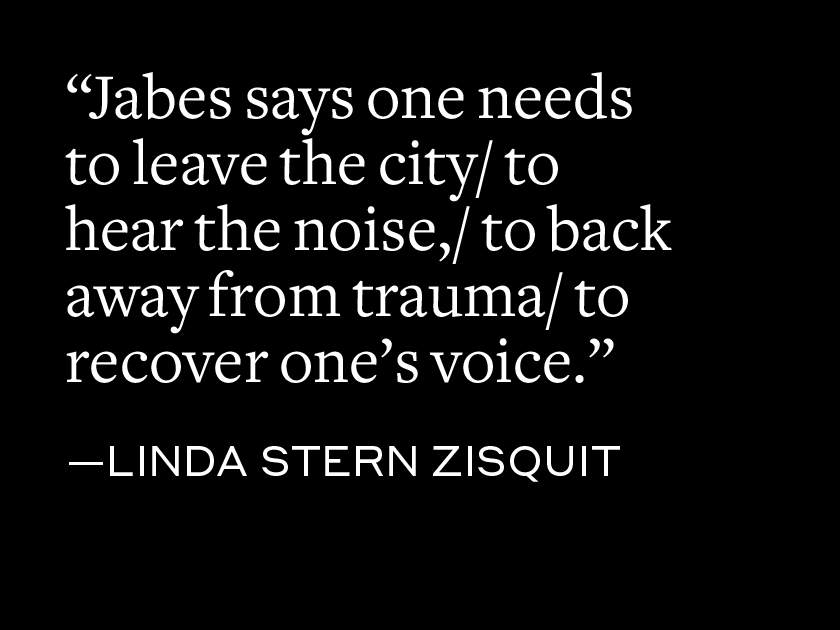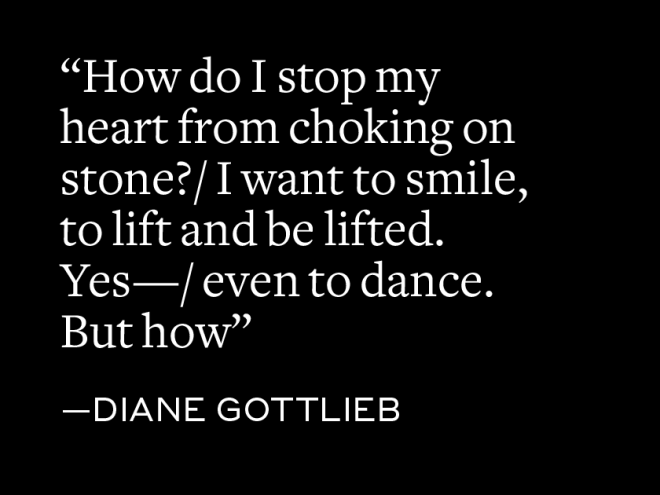
This piece is part of our Witnessing series, which shares pieces from Israeli authors and authors in Israel, as well as the experiences of Jewish writers around the globe in the aftermath of October 7th.
It is critical to understand history not just through the books that will be written later, but also through the first-hand testimonies and real-time accounting of events as they occur. At Jewish Book Council, we understand the value of these written testimonials and of sharing these individual experiences. It’s more important now than ever to give space to these voices and narratives.
In collaboration with the Jewish Book Council, JBI is recording these pieces to increase the accessibility of these accounts for individuals who are blind, have low vision or are print disabled.
That Time
Levinas says our main prophet
was slow of speech and slow of tongue.
No one listened to him.
It’s hard to give the stammerer
time when we’re in a hurry
to hear the truth.
*
Jabes says one needs to leave the city
to hear the noise,
to back away from trauma
to recover one’s voice.
*
At the Upper Liddesdale cottage
the sky grey and full of
luminous light. On screen,
the parents of a hostage
speak at the Democratic
Convention. Bring them home
they plead. Applause. Chants.
Is anyone listening?
What I love most are the sheep,
like sculpture, a still-life
even in the downpour
they stay stationary, rocks
white on deep green,
the grass they nibble motionless
and the sky that outlines their
earthly existence and the quiet
movement of clouds above them
all a wistful wonder they
sleep and wake and graze
in the meadows amid the tufts
and trees and then slowly tread
soulful and serene. I hold on for dear life
and press my hip to the right
as if to keep the car from falling over
or on impact crashing
with the oncoming news.
Two flat tires between
Stirling and Fort William.
A vacation in the hills along a lake
while the dead are piled up at home
and the parents of the not yet released
speak and speak. Almost from the start
we have seen who is not listening,
hands over ears, eyebrows
arched like the cones of violent
mountains. We knelt on the narrow
road to locate the number on the tires,
our clothes soaked. And yet nothing,
nothing could have been safer or calmer
as if that stop on the way did not
hold us up in a world gone awry.
It was hard to go away
when war was tearing us apart
at home. And yet it wasn’t hard
to be there, the sheep and bulls,
the ferries that took us from Strontian,
to Mull, the castle we didn’t visit,
the taxi driver who waved
“God bless your country!”
It wasn’t hard to come back
either. It’s only hard to be here
now. Bring them home. Now.
This piece is part of a longer work.
The views and opinions expressed above are those of the author, based on their observations and experiences.
Support the work of Jewish Book Council and become a member today.
Linda Stern Zisquit has published six poetry collections, including Korah’s Daughter (2022), Return from Elsewhere (2014) and Havoc: New & Selected Poems (2013). Her translations from Hebrew include works by Yona Wallach, Rivka Miriam and Hedva Harechavi. She is Associate Professor (emerita) and for many years was poetry coordinator for the Creative Writing Program at Bar Ilan University. Born in Buffalo, NY, she lives in Israel where she teaches and runs Artspace, a gallery in Jerusalem representing local artists.



